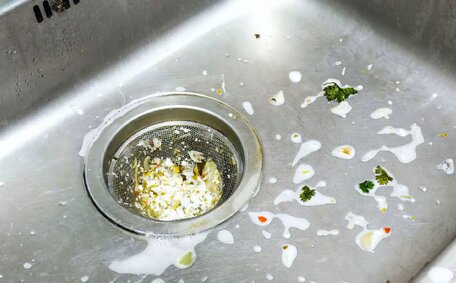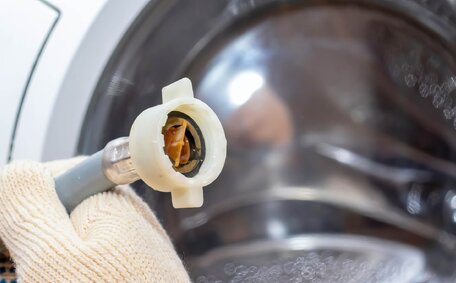Understanding Gas Leaks and Emergencies
Gas leaks present significant risks, including the possibility of fires, explosions, and toxic fume exposure. Natural gas is essential for various appliances, supplying heat and hot water in homes and businesses. Recognising signs of a gas leak and knowing how to perform an emergency shut-off is crucial.
Although generally safe, leaks can arise from pipe corrosion, damage, faulty installation, or natural disasters.
Indications of a gas leak include an unusual rotten egg smell, hissing or roaring sounds coming from pipes or appliances, dead or discoloured vegetation near gas equipment, and dirt blowing from a hole or crack in the ground.
Act immediately to shut down potential ignition sources upon noticing signs of a gas leak. Leak fumes displace oxygen, with high concentrations leading to nausea, dizziness, and even unconsciousness or death from asphyxiation or explosion. If you suspect a leak, promptly evacuate the area and contact emergency services. Avoid using phones, activating lights, smoking, or any action that might spark and ignite the gas.
Once outside, the gas supply should be shut off at the main valve to prevent accumulation of gas inside. If you suspect any lingering gas presence, turn off your gas supply and do not re-enter the building until given the all-clear by qualified technicians.
Meters for your gas water system are usually installed where they can easily be accessed by the side of your building or close to the boundary. Turn the gas safety shutoff valve a quarter turn, horizontally or vertically, depending on its design. An inspection and leak test will be required before turning gas supply back on.
Locating Your Gas Meter Shutoff Valve
To be prepared, it’s a good idea to know where your gas meter and its shutoff valves are located in case of a gas leak emergency. You can find your meter by checking the external walls or front garden of your property - gas meters are commonly positioned in easily accessible spots for utility access.
Gas meters are usually housed in a large metal meter box at ground level, with pipes attached, situated on a concrete base.
Identify the gas shut-off valve handle, which is either a T-bar or flat metal lever extending from the meter. This valve regulates the flow of gas from the mains supply into your home’s gas system.
If you have linked to a smart meter, your water system shutoff will function the same way despite digital monitoring capabilities. Old-style dial meters also halt your gas supply in the same manner by rotating the valve handle horizontally. Just remember - never attempt to disconnect or undo gas supply pipe fittings.
Having a clear idea where the shut off valve for gas lies prepares you to act fast in any gas leak crisis. Our emergency plumbers can also help locate your gas meter if needed.
Operating the Gas Meter Valve
In an emergency gas shut-off, handle the gas meter shutoff valve with caution. Start by locating the T-bar or lever-style valve handle protruding from the metre. Grip the handle firmly and rotate it slowly 90 degrees until it sits perpendicular to the direction of the gas pipe.
A horizontal valve position indicates that the gas supply to your home has been stopped.
Some valves may instead require a vertical rotation to operate the safety shutoff valve for gas flow. Refer to any instructions printed on your metre.
Turn the valve smoothly and with moderate force to avoid pipe damage that could lead to dangerous leaks. The valve is designed for easy quarter-turn operation by hand to manage your home gas - tools should not be necessary.
After turning the valve, switch off all gas appliances and ventilate your property by opening windows and doors. The main shut-off valve stops the gas flow past the meter and into the home’s fuel lines, effectively halting the gas supply. Appliance valves will still require being turned off individually afterwards, so do not presume the entire gas supply is disconnected.
Extinguish all flames and smoking materials before assessing pilot lights.
Having cut off the mains feed, call emergency services then ring a licenced gas fitter to inspect your installation and fittings. Give the property address and contact information. You need verification of system integrity before resuming gas supply through the metre.
Safety Precautions When a Gas Leak is Suspected
If you smell lp gas or suspect a leak, prioritise safety before attempting to shut off the gas. Do not turn any electrical devices on or off, even lights, as switching and sparks could ignite gas fumes.
Especially avoid any naked flame sources like matches, lighters, or candles around liquid propane systems. Immediately ventilate the area by opening doors and windows, being sure to keep pathways clear.
Do not remain inside the building and ensure your family evacuates if the gas odour persists even after ventilation. Lead all occupants away from the affected area to an upwind location at a safe distance, and then notify local emergency services. Once safely outside, contact emergency services with the address and contact details.
Though natural gas rapidly disperses in the open air, its accumulation in enclosed spaces poses a significant explosion risk.
Note details like metre location to tell first responders.
If able, find out more about any resource materials ahead to be accessed safely away from the building. While waiting, do NOT re-enter the structure for any reason until given the all-clear by authorities. Take these precautions seriously whenever a leak is possible - never hesitate to act.
Professional Help After Shutoff
After turning the main gas supply off, it is crucial that you arrange an inspection by a licenced gas fitter before engaging your gas supplier to turn it back on or using any gas appliances. Gas systems must be thoroughly leak tested and verified as intact by a professional technician following any emergency shutoff situation.
Do not attempt to reconnect your gas stove or relight any appliance’s pilot lights on your own. Our skilled gasfitters provide gas services in all suburbs and are accessible 24/7 for emergency situations.
Contact Burwood Plumbing on 1300 349 338 or jobs@burwoodplumbingservices.com.au for urgent assistance and repairs. We are fully qualified to check all pipes, fittings and has gas been equipment for correct, safe functionality.
Arranging professional inspection also ensures compliance with legal requirements. According to Australian gas installation standards, properties must be leak free with adequate ventilation and fail-safes before utilities can be restored. We handle all necessary testing, documentation and clearance processes following a shutoff event.
For complete peace of mind, read our blog as our workmanship is insured and guaranteed. We ensure your safety and system operation before completing our service. Call us anytime - we are ready to respond and get your gas back on safely.
Gas Leaks Outside the Home
If you detect a gas leak outside, such as in your front garden, call the gas leak hotline at 1800 427 594 immediately and refrain from trying to turn off the gas yourself. Natural gas pipelines operate under extremely high pressure and shutting off your gas requires specialised handling. Ruptured gas lines can release large volumes of flammable gas quickly, necessitating an immediate call to your gas company to address the fire emergency risk.
If you smell gas or hear hissing outside, promptly evacuate everyone inside your house and the surrounding area to a safe distance. Call the Gas Leaks and Emergency Line on 1800 427 594 to report the leak location. Trying to fix leaks in high pressure gas pipes on your own could have devastating consequences.
Trained technicians will be promptly dispatched to handle shutdown and repairs.
To avoid leaks, don’t dig or drive posts near underground gas pipes before having the lines accurately located and marked. Look for marker posts and notify relevant authorities like Dial Before You Dig on 1100 to have pipe layouts traced prior to commencing any works.
Heavy equipment and excavation works should also confirm the positioning of utilities to safeguard your gas line from accidental ruptures. This keeps both you and the gas infrastructure safe.
If gas leaks are detected inside the home, follow our earlier guidance on activating the safety shutoff procedure at your gas meter.
Otherwise for external pipeline leaks, stay clear and let the experts handle things safely. Call emergency services immediately either way – gas leaks should never be ignored. Responsible action protects lives and property.
Appliance-Specific Gas Safety
Regularly inspecting gas appliances like stoves, hot water systems, and heaters is essential for safe operation. Particularly check the pilot light on older gas appliances for blockages, ignition problems, and the functioning of safety mechanisms. Flame appearance and heat output consistency should be monitored in case adjustment is required.
Have your licensed gas fitter annually review all your gas appliances to catch any wear and compliance concerns early. We check pipe connections, mechanical components and fail-safe controls across the unit lifespan following manufacturer specifications.
If your gas hot appliances ever fail to ignite, smell unusual or produce excessive soot, immediately turn your appliance off and contact emergency services. Never try relighting gas appliances pilot lights yourself without a thorough safety assessment beforehand. Our experts handle all diagnostics and repairs.
For your hot water heater, inspect the flue exhaust and shield yearly for blockage or backdrafting risks. Ventilation around appliances should be clear. Read our fixed-price servicing options inclusive of inspection, tuning, carbon monoxide testing and more to give you ongoing peace of mind.






